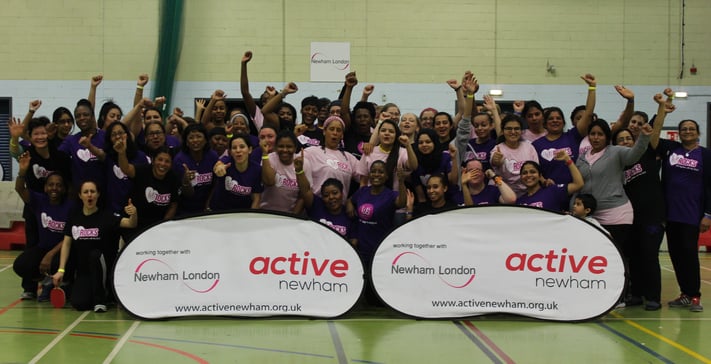Two apparently unconnected stories:
Last week in the House of Commons, Lyn Brown, MP for West Ham and a former Chair of Leisure Services for Newham Council, gave a speech in the House of Commons about the Match Girls strike of 1888. Over 1,400 local women worked in appalling conditions at the Bryant and May factory just the other side of the Olympic Park. They struck for fairness, justice and a safe working environment. Lyn Brown wants a Blue Plaque put on the building – now a gated residential community – to commemorate their struggle for equal treatment.
Meanwhile, some 4,500 miles away in India, the Tibet Women’s Football Team continues its campaign for gender equality and empowerment. Their goal is to “facilitate the expansion of the female Tibetan voice, nurture the idea that Tibetan women possess the talent and capabilities equivalent to men and forge the bonds of sisterhood.” To date, more than 3,000 young Tibetan women living in exile in India have benefited from their programme.
What links these two stories is the struggle for gender equality. Back in the 1880s the trade union establishment was completely male dominated. That has now changed. However, the Tibetan women face a problem that has not changed – a male sports establishment that finds equality a difficult concept to come to terms with. Ring any bells? But they battle on.
All this forms a useful backdrop to how we look at International Women’s Day on March 8th, especially when it comes to sport and physical activity.
Women are still under-represented on sports governing bodies, women’s sport is under-funded, prize money is lower, girls drop out of physical activity earlier than boys and, as the latest Sport England, Active Lives survey shows, adult women are more likely to be inactive than men.
The Active Lives survey also shows that Sport England’s focus on certain activities, especially competitive sport, is biased towards men rather than women. As a result, they now intend extending their remit to include activities more popular with women including walking for travel and leisure, and dance.
So what is activeNewham doing to help redress the balance?
Well, we aim to make our facilities and programmes as inclusive as possible.
The award-winning Us Girls programme offers a variety of fun, female-only sessions that increase the fitness levels of women and girls. Activities include pilates, Zumba, netball and gym.
We will also be continuing our close partnership with StreetGames to roll out an Us Girls Hub programme across the borough. This will ensure that more young women and girls living in disadvantaged communities are taking part in regular physical activity.
The Active Schools programme aims to increase physical activity in the 11 – 16 years age group with an emphasis on female participation and sustainability.
Our leisure centres offer female-only swimming and group exercise sessions at various times during the week.
We are also promoting and supporting Sport England’s “This Girl Can” campaign. “This Girl Can” is a celebration of active women who are doing their thing no matter how well they do it, how they look or even how red their face gets. Funded by The National Lottery, it’s part of a drive to help women overcome the fear of judgement that is stopping too many women and girls from joining in.
What links all these stories, from Lyn Brown highlighting the historic struggle of East London women, through Tibetan women footballers to women in Newham today is the universality of the onward march of women’s equality. International Women’s Day 2017 is asking us to “Be Bold for Change”. activeNewham welcomes the challenge.